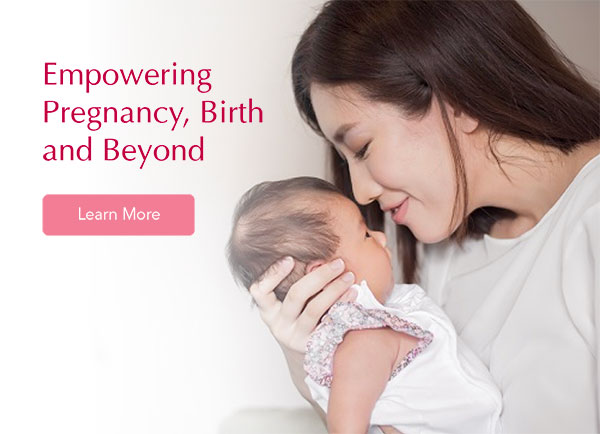The post-partum weight loss journey

Concerned about your post-pregnancy body? Do not worry, you are not alone! During pregnancy, there are many physical changes to your body: the breasts, abdomen, skin, urinary tract and genitals to name a few. They will return to ‘normal’ by 6 weeks post-delivery. Weight gain during pregnancy is due to the extra weight of the enlarged breasts, the enlarged womb, placenta, the baby, the water retention and storage of body to make breastmilk. It takes about 9 months to grow a baby, so naturally, time is also needed to lose the postpartum weight.
This article is written in collaboration with Dr Angelia Chua (Consultant, Family Physician, National Healthcare Group Polyclinics).
With some lifestyle changes, achieving your pre-pregnancy weight is not impossible!
Read on for some tips on how to get back to healthy weight!
4 Ways To Manage Your Baby Weight Post-Partum
1) Maintain a Healthy Diet
A simple way to begin your weight loss journey is to keep track of what you eat using a food diary. Choose the healthier alternatives where possible, like the food choices below:
- Consume foods that are high in fibre. Fruits, vegetables and healthy grains, such as oats, brown rice and quinoa, are soluble fibre foods that help to slow down digestion and make one feel full. It can reduce hunger pangs and the urge to snack.
- Introduce lean protein at all meals for a sense of fullness. Healthy protein sources include lean meats, eggs, legumes, nuts, seeds, and dairy products.
- Adopt healthier food alternatives for in-between meals too. Look into cut vegetables, baked/natural nuts and dried fruit or low-fat dairy products whenever you have a craving. Remember to eat in moderation.
- Drink water with your meals to increase the sense of fullness, with a recommended 2 litres of water daily.
It is important to have regular meals to prevent yourself from overeating during your next meal. So, amidst your plans for weight loss, remember not to skip meals!
When in doubt, do seek advice from a dietician who can devise a personalised eating plan to suit your needs and help you manage your weight in a safe and effective manner.
2) Keep Moving, Keep Active
Exercise is one of the tried-and-tested solutions towards weight loss and a healthy lifestyle. It is no different when it comes to managing baby weight. As a busy parent, you may find that you do not have as much time for full-fledged gym workouts like you used to. Fret not, we’ve got you covered with these exercises:
Try These in the Comfort of Your Home!
Throw in a mix of cardio, strength training, balance and flexibility into your postnatal workout routine such as
- Low impact aerobics workout. Ease back into physical activity with these simple exercises. Regular physical activity will help regain fitness levels, improves overall mood and support weight management.
- Modified Pilates. Low intensity exercise helps to improve posture and strengthen pelvic floor and abdominal muscles.
- Gentle stretching – Great exercise for muscle relaxation and prevents muscle strains.
- Resistance training. Supports weight management and build muscular strength.
- Pelvic floor exercises. Helps to strengthen pelvic floor muscles and reduce the risk incidences of incontinence and prolapse
- Postnatal Yoga. Helps with muscle relaxation, stress management, improves overall mood and muscular strength, balance and flexibility. Join us at our free physical postnatal exercise class island wide!
Try These for Some Fresh Air!
- Take a walk or a jog outdoors. Use a jogging stroller or a baby carrier and bring your little one out to enjoy the nature at our family friendly parks. Once you are ready for moderate intensity exercise, increase your walking speed progressively.
- Go for a swim. A relaxing, low impact and light aerobic exercise that helps postpartum mummies to regain fitness and supports weight management. If you brought your baby along, try to have someone else there to mind your baby so you have a chance to swim.
Aim for at least 150 minutes of the recommended amount of moderate aerobic exercise each week. Start slow and gradually increase the duration and frequency. Keep active by incorporating a variety of activities that are fun and easy to adhere to. Involve your family in your routine; make it a sustainable endeavour that is fun and beneficial for all!
Remember to listen to your body – you have just been through a period of great change, and your body needs time to go back to its pre-pregnancy condition. If unsure, check in with your doctor before starting on an exercise regime.
3) Try Breastfeeding And Reap The Benefits For Mother And Baby
The calories burnt while breastfeeding can help you shed some of the weight gained during pregnancy. A weight loss of about 1 to 2kg a month is considered as a healthy amount to lose. Do continue with a balanced diet with sufficient calorie intake and a variety of nutrients as they are important in breast milk production.
Find out more about the benefits of breastfeeding for you and your baby here.
4) Adopt Healthy Habits, Set Realistic Goals
Weight management is a journey. You may be tempted to source for short cuts, but they may not be safe.
Here’s one short cut that you should NOT try:
- Steer clear of crash diets. Low-calorie regimens that aim to lose large amounts of weight within a short time may seem like easy methods. However, they impose health risks that can weaken your immune system, among others.
Other unhealthy habits that you should avoid include:
- Food with added sugar and refined carbohydrates. Sweet treats like sugary drinks, fruit juices, cakes and pastries seem irresistible but are packed with added sugar and carbs. These are associated with weight gain, and often leads to an increased risk of diabetes and heart disease.
- Processed food. They contain high amounts of sugar, saturated fats, salt, and calories. Fast food, ready-to-eat foods, chips, and candy all fall into this category.
- Alcohol. This drink is filled with additional calories, limited nutrition and will lead to weight gain.
- Sedentarybehaviours such as prolonged sitting or lying down. Physical activities can help with recovery and weight loss. However, always seek clearance from your gynaecologist before engaging in physical activities of moderate to vigorous intensity.
Be patient, as going back to a healthy weight will take some time and effort. The time needed varies with each person. Set realistic goals for weight loss over a period of one to two years.
Post-Partum Weight Management – A Tricky Business
There are no shortcuts to losing baby weight. Reclaim your body through these 4 healthy ways – maintain a balanced diet, engage in physical activities, try breastfeeding and set realistic goals – for sustainable healthy weight.
If there are any concerns with weight loss, do know that it is okay to reach out to your physician. If you feel like your journey is starting to take a toll on your mental state, do seek professional help for advice on mental wellbeing or speak to your loved ones as they will be there to give you the support you need.
Source: Health Promotion Board
The article has been endorsed by various representatives from both public and private healthcare institutions including Ms Adeline Kooh Seok Koon (Asst Director, Nursing (Maternity), Mount Alvernia Hospital).
Visit Health Promotion Board’s Parent Hub, for more useful tips and guides to give your baby a healthy start.



